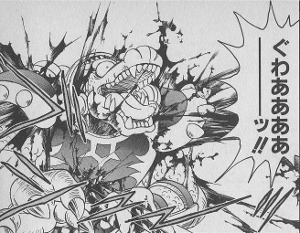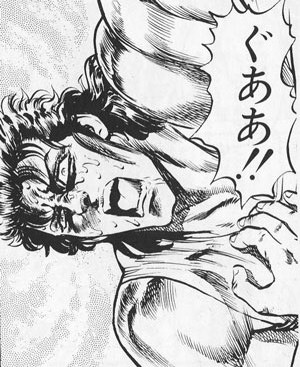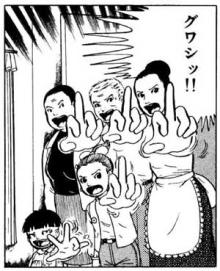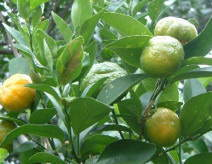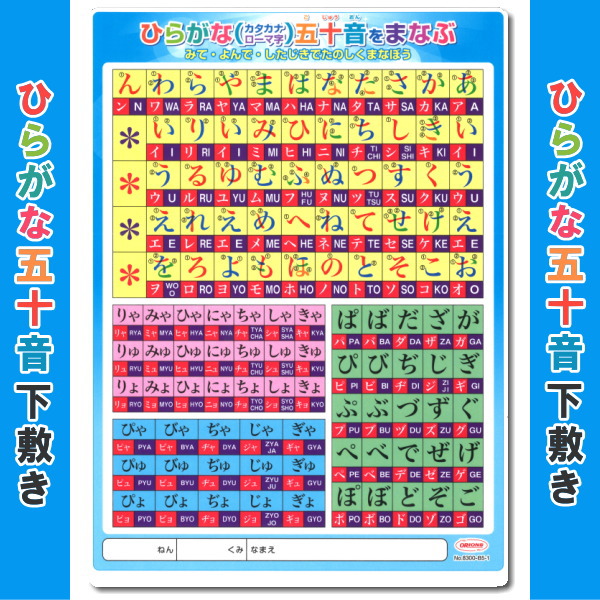It's listed as being borrowed from English, but even if it were the case that it had been borrowed from Portuguese, it's still pronounced /ɡwɑɹ/ and not /ɡɑɹ/. Japanese phonology is also perfectly capable of handling this--it could have been ジャグアー or even ジャグワー. But in every single instance I've seen, it's ジャガー. Why did they borrow it like this?
-
It's likely impossible to know why it was borrowed like this, but a good guess is because ジャガー preserves the English (and Portuguese) word's syllable count/rhythm, whereas ジャグアー does not (and グァ was possibly not a thing yet, so no ジャグァー).– AmadanCommented Dec 25, 2017 at 8:04
-
3Not that I have specific evidence against this, but I tend to doubt it because tons of words don't preserve the original syllables/rhythm; I'm fairly certain it's almost never a concern when borrowing words.– KurausukunCommented Dec 26, 2017 at 3:05
-
2I can't recall which rn, but i've come across many borrowed words in japanese where I thought to myself "why didn't they choose this one way instead? It would be much more faithfull to the original word", we have to remember that some words become "official" when they get popular. The word for white in portuguese used to be "blanco" in the past, but people from the country side always mispelled it as "branco", to the point it got more popular than the "right" one and then it became the official one. Maybe something like that happened here as well. Maybe ジャガー felt more natural and easy to speak– Felipe Chaves de OliveiraCommented Apr 19, 2018 at 17:00
-
3Japanese phonotactics allowed the sequences /kwa, gwa, kwe, gwe/ starting in the Early Middle Japanese period, and these sequences were still valid until quite recently – the glides were lost late in the nineteenth century. Today, words such as 会話 /kaiwa/, 元年 /gaɴneɴ/ and 観音 /kaɴnoɴ/ no longer have these glides, but they were formerly /kwaiwa/, /gwaɴneɴ/, and /kwaɴnoɴ/. It is possible that jaguar was borrowed with /gwa/ and subsequently lost its glide, but it seems more likely it was borrowed later and from BrE with /j/ and not /w/, so that is probably not the answer . . .– user1478Commented Apr 19, 2018 at 17:34
-
2@snailboat だったら「ジャギュアー」とかのはずでは?– AngelosCommented Apr 19, 2018 at 17:35
3 Answers
The glide /gw/ may have been preserved in spelling for native vocabulary until at least the kana orthography reforms, but was completely lost in recent pronunciation. I'm thinking that when the word jaguar was borrowed into Japanese, /gw/ was transformed into /g/ to fit Japanese pronunciation at that time.
This actually happened to quite a few words (mostly proper nouns):
Paraguay, with representations
- パラグアイ/パラグワイ (common)
- パラグァイ (Paraguayan Embassy in Japan)
- 巴拉圭 (probably Chinese, listed in some older Japanese documents)
- 巴羅[貝]{がい} (older Kanji representation; note, 貝 here uses a kun'yomi reading)
Uruguay, with representations
- ウルグアイ/ウルグァイ (common)
- 宇柳[貝]{がい} (older Kanji representation)
- 宇柳具 (copying error of 貝)
Guatemala, with representations
- グアテマラ
- グァテマラ
- ガテマラ
guarana (a plant), most commonly spelt as ガラナ
- guanaco (South American camelid), with representations
- グアナコ
- グァナコ
- ガナコ
- グワナコ
- グヮナコ
外来語の表記, the 1991 National Language Council report on the kana representation of foreign words, contains the following relevant content:
「外来語の表記」に用いる仮名と符号の表
第1表に示す仮名は,外来語や外国の地名・人名を書き表すのに一般的に用いる仮名とする。
第2表に示す仮名は,外来語や外国の地名・人名を原音や原つづりになるべく近く書き表そうとする場合に用いる仮名とする。
第1表・第2表に示す仮名では書き表せないような,特別な音の書き表し方については,ここでは取決めを行わず,自由とする。
第1表・第2表によって語を書き表す場合には,おおむね留意事項を適用する。
外来語の表記 留意事項その2(細則的な事項)
第2表に示す仮名は,原音や原つづりになるべく近く書き表そうとする場合に用いる仮名で,これらの仮名を用いる必要がない場合は,一般的に,第1表に示す仮名の範囲で書き表すことができる。
...
「グァ」は,外来音グァに対応する仮名である。
〔例〕 グァテマラ(地) パラグァイ(地)
注1 一般的には,「グア」又は「ガ」と書くことができる。〔例〕 グアテマラ(地) パラグアイ(地) ガテマラ(地)
注2 「グァ」は,「グヮ」と書く慣用もある。
Basically, although the orthography prescribes spelling foreign loanwords originally pronounced with /gw/ with the sequence「グァ/グア/グヮ」, from the traditional loss of the glide in /gw/ it is valid to not pronounce this glide at all, reflected in the accepted spelling「ガ」for some of these loanwords and the use of「[貝]{がい}」in some older kanji representations of these loanwords. Jaguar was probably borrowed without the /gw/, fitting contemporary Japanese phonology at the time, and just represented as such as「ジャガー」.
Why is there no /w/ glide in the Japanese?
Currently unknown.
I cannot find anything definitive describing this. I can't even find when the term first entered the Japanese language, though presumably this can be discovered by spending more time researching. (I am finding tons of pages about the brand of car...)
Background
According to Shogakukan's 国語大辞典【こくごだいじてん】, the Japanese term ジャガー (jagā) derives specifically from American English. This explains the lack of any /j/ glide, as in the British pronunciation /ˈdʒæɡjuːə/. The Japanese Wikipedia article somewhat incorrectly notes that the term jaguar derived from a South American language term like yagā, which would explain the lack of any /w/ glide -- except the derivation I'm more familiar with is Old Tupi îaûára, which has a /w/ but no /ɡ/ at all. The entry at Merriam-Webster (currently seems to be broken in Chrome; works in FireFox) uses the older spelling jawára, also with a /w/ but no /ɡ/, so I think the JA WP article must be mistaken. It's worth noting that both Spanish and Portuguese have sometimes borrowed medial /wa/ sounds as ⟨gua⟩.
However, all that said, the derivation of the term only deepens ...
... The Mystery of the Missing W!
<ahem.>
Depending on the date of initial borrowing, snailplane's mention of the shift in Japanese from /ɡwa/ to /ɡa/ could be our best bet.
-
1I see your point, but there are a few things that bug me. For one, the word would have had to have been borrowed a good amount of time ago for the glide theory to apply correctly. While I haven't looked up a corpus of information to find the earliest written example, I can't imagine it was borrowed that early on. I also don't see why it wouldn't be borrowed as ジャグアー; that seems like a more natural approximation, no matter the case. Commented Apr 19, 2018 at 22:06
-
1@Kurausukun The loss of /kwa/ /gwa/ is super recent. It was still doing fine by Lafcadio Hearn's time, as you can see by the title of his Kwaidan. In fact, several dialects still preserve it. Though OTOH if this is right I would expect an early グワ spelling, as that was the prewar orthography for /gwa/. Commented Apr 20, 2018 at 10:25
I believe it is because the spelling "グワ" is considered as non-standard pronunciation in modern Japanese. There is no publicly defined rule book, but I feel the usage of "グワ" is limited to express noise, yelling or moaning.
For example,
from 漫画、アニメキャラ弱さランキング
from 本日は南風原中で野球の試合です。
What comes into my mind when I think of the pronunciation "グワ" as a noun is "シークワーサー(shi-kwah-sah)" which is a name of a fruit from Okinawa district. Okinawa historically belonged to a different nation; so they use a different language. In main land of Japan, the usage of pronunciation クワ/グワ is limited.
For further information, see Citrus depressa (シークワーサー shi-kwah-sah )
I cannot remember any other examples than this...
My best guess is that Japanese people used to spell as ジャグワー in old day, ( say in Edo era or somewhere ) but along with the word was getting popular and common, people started to avoid the uncommon pronunciation of グワ so it changed to ジャガー. I cannot find any written evidence of it, but such process of simplification is often observed in Japanese loan words.
I believe that it is common for Japanese to avoid a specific spelling because it is not considered as standard pronunciation even if the Japanese spelling system has an ability to express its original foreign originated pronunciation of a loan word.
For example, Van Halen is usually spelled as バン・ヘイレン(ban heiren) not as ヴァン・ヘイレン(van heiren) because ヴ is not considered as a standard pronunciation and it is supposed to be spelled as ブ. But in the recent ten or twenty yeas, this situation is gradually changing and people are getting accepting the spelling ヴ.
Meanwhile ヴ is getting accepted, あ゛is still considered informal.
Additional Information about Japanese Loan Words
Japanese loan words are so broad. This time, I have researched for several hours to write this, but it turned out that most of part is not related with the answer. I think I am going to leave the information I collected this time below for people who are interested this topic.
The following explanation is not based on formal study, but I believe this point of view is shared as a common sense among Japanese people.
History of Japanese Loan Words
In my opinion, Japanese loan words might be roughly classified by the Japanese historical eras. Depends of the era when a loan word imported to Japanese language, different pronunciation conversion rule is applied.
- Heian era (794 – 1185)
- Muromati era (1336 – 1573)
- Edo era (1603 – 1868)
- Meiji era (1868 – 1912)
- Shohwa era (1926 – 1989)
Heian era (Kanji)
Japanese imported a great number of loan words from China at Heian era. This group of loan words are playing very important role in the language; these are called 漢字 Kanji.
In spite of the fact that Kanjis are actually loan words, most Japanese people forget about the fact, and consider Kanjis are originated in Japan. I feel very lucky that Chinese government still have not litigated Japanese government due to copyright infringement. So please do not tell this to Japanese people or they will strongly oppose to you.
Muromati ~ Edo era
In Muromati era, a Spanish Christian preacher Francisco de Xavier came to Japan and bring the "good news" to Japanese people. In this era, Japanese government were running trading business between European countries such as Spanish Portugal and Holland. So loan words that were imported in this era, are very likely originated in these countries.
See 外来語の出身 ①(ポルトガル語、オランダ語について)
Portuguese originated loan words :
オルガン (Organ a music instrument) タバコ/煙草 (Tobacco=cigarette) パン (bread) カルタ (Card) カステラ (Sugar Cake) カッパ(合羽)(Rain Coart) キリシタン (Christian) シャボン (Bubble) ビードロ (glass)
Holland originated loan words :
アルカリ(alcaline) レンズ(lens) メス(knife) ビール(beer) ランドセル(school bag) ペンキ (paint) ズック(shoes) ブリキ(Tinplate) オルゴール(Music Box) ガラス(glass) カバン(bag) コルク(cork) コーヒー(coffee) ゴム(rubber) ポンプ(pump) リュックサック(knapsack) ホース(horse) ペスト(Black Death) スポイト(Syringe) ピンセット(tweezers) モルヒネ(morphine) サーベル(saber) コップ(cup= Portuguese:copa) レッテル(label)
Meiji era
See
At Meiji era, some prominent novelists imported many foreign originated words into Japanese language.
According to アンカ・フォクシェネアヌ , following words are loan words which are imported by Yukichi Fukuzawa 福沢諭吉{ふくざわゆきち}.
ホテル(hotel) ドック(dock) シャンパン(champagne) コップ(cup) マッチ ストーヴ(stove) ダンシング(dancing) ガルヴァニ( テレグラフ(telegraph) ガス(gas)(便所の内外ガスの光明) エレキトル(electricity) テーブル(table) コンミッション(commission)
Note that since Yukichi Fukuza was official translator of English at the end of Edo era, the loan words he imported are mainly from American English.
Following words are loan words which are imported by Soseki Natume 夏目漱石{なつめそうせき}.
硝子{ガラス} ( glass ) 洋燈{ランプ} ペン (pen) 洋琴{ピアノ・ピヤノ} (piano) 洋杖{ステッキ} stick 暖炉{ストーブ} ロッキング・チェア (rocking chair) 敲子{ノッカー} (door knocker) ベル{号鈴} (bell) ポンプ (pump) 停車場{大ステーション} station バス bus ローン (lawn) 泥炭{ピート} peat プラットフォーム (platform) ガス{瓦斯} gas 絹紐{リボン} (ribbon) マッチ (a box of matches) 自動革砥{オートストロップ} ベゴニア(Begonia) 洋盃{コップ} ヴァイオリン (violin) 端艇{ボート} 志{シリング} 印気{インキ} ダイナマイト (dynamite ) グラム (gram) 寝床{ ベッド } (bed) ミリメター (millimeter) コスモス(cosmos = a name of a flower)
His style of importing is distinctive. He translates the words as Chinese kanji words, then put a ruby to the word. This style is considered stylish and it also work as an effect to express exotic atmosphere. This technique is still used today in Japanese comics, too.
John Manjiro ジョン万次郎
In the end of Edo era, he worked as a translator. According to the wikipedia, he was one of the first Japanese people to visit the United States and an important translator during the Opening of Japan.
こーる(cool) わら(water) さんれぃ(Sunday) にゅうよぅ(New York) エンケレセ(English) しゃま(summer) キャア(cat) ナイ(night) モヲネン(morning) イヴネン(evening) ウィンダ(winter) コヲル(cold) ウヱシツ(west) ゲイ(gate) ネ(net) フワザ(Father) エネ(any) ソレ(sorry) センカ(think) ゼシ(this) コシチャン(question) メクダノ(McDonald) ハマチ(How much?) ヤロ(yellow) アー ユー カメン?(Are you coming?) アイ アム ゴイン(I am going) イータ イシ エイ ムーン ライト ナイ(It is a moon light night.)
His conversion rule of pronunciation is based on the actual pronunciation of American English, not on its spelling. Some people consider John Manjiro's rule is easier to comprehend to native English speakers than the current standard conversion rule, Hepburn's rule.
Later day, Manjiro's conversion rule was disputed by the Japanese government and the government accepted the Hepburn's rule as standard.
Hepburn's rule
Hepburn's rule is a method to spell Japanese words by alphabet. Hepburn's rule was invented James Curtis Hepburn in 1886. See Romanization of Japanese. Japanese romanization rule is a topic which is so broad. Please read other articles for further information.
Romanization rule is usually used to convert Japanese to English not English to Japanese; so strictly speaking, it is slightly off topic here. But it still have strong influence to the way how to import foreign originated words into Japanese. It is a good opportunity to have a glance.
This is a table Japanese kids are obliged to memorize with nine to nine Multiplication table. This conversion rule is called ヘボン式.
The pronunciation of the name "ヘボン式" itself is ironically based on another pronunciation conversion rule; Hepburn is now commonly written as "ヘップバーン" in modern days, not as "ヘボン". The name "ヘボン式" remains to the old traditional spelling rule. It turns out that the name itself ironically opposed to the rule itself.
Showa and modern era
After the second world war, Japan came under the strong influence of United States; the most loan words which were made in this era are imported from United States. The loan words in this group are so broad so I cannot list all of the words here. Technical terms which are related to IT things belong to this group. There are MANY.
And as far as I know, there is no authority that makes decision how to form the rule for importing loan words. This is always the source of a lot of confusion for Japanese people,too.
I remember that in late 80's there was a controversy about how to pronounce a computer game "Ultima" . Now it is commonly called "ウルティマ" but in the era of the dawn of the Japanese computing, there were some people insist Ultima is supposed to be pronounced as "アルティマ" because according to them アルティマ is more precisely reflect the actual English pronunciation. After the war, アルティマ was disputed and it is called ウルティマ till now.
For further information, see the following articles.
- ウルティマ・アルティマ論争 (URUTHIMA/ARUTHIMA Controversy)
- Oh FM7 「ウルティマ」、「アルティマ」論争(URUTHIMA/ARUTHIMA Controversy)
Duplicate Importing
It is very often that different groups import a same word twice as different words and use them as different situation.
カップ/コップ is a good example. コップ is very likely originated "kop" from Holland. カップ is very likely originated "cup" in English. They are basically same thing. In Japan, コップ is usually a glass cup or could be a plastic cup. カップ is usually made by ceramics. カップ is never made of glass, but could be made of paper.
Conclusion
I think it is very complicated and it does not help how you speak Japanese well. I believe it is best to avoid studying about origin when you came into learning Japanese. Learning origin just does not work for learning Japanese.
Japanese people often call it as "大人の事情(otona-no-jijoh)" with euphemism.
-
I found an example of usage of クワ. スクワット(Squat) This word is very likely imported in recent days. WHY jaguar is ジャガー and squat is not スカット... ! it make sense to me! but it is spelled as スクワット ! This example totally destroyed my explanation. ... I suspect this discrepancy came from difference of the era when the word imported at. ジャガー is much older than スクワット as a loan word I believe.– AtsCommented Apr 20, 2018 at 7:42
-
That's a very thorough and well-researched answer, but I want to clarify that I'm not asking this because I think it'll help me get better at Japanese or anything, I'm asking because etymology is interesting on its own as a field. I also don't agree with your claim that "Learning origin just does not work for learning Japanese," but your answer is good, so I'll upvote it. Commented Apr 20, 2018 at 8:32
-
Thank you for your replying and upvoting. Your response is almost identical to what I was worrying you would respond, in fact. And that is also identical my impression about what Japanese researchers do. Japanese people(researchers) often almost intentionally think in obscurity and most studies about Japanese culture they achieve are also obscure,too. This is what is always irritating me 24/7 every day but that's the way Japan is.– AtsCommented Apr 20, 2018 at 9:26
-
This question makes me interested in the etymology of ジャガー ... My best guess is Japanese researcher do not know the exact pronunciation of the word "jaguar" so they do not recognize the fact the pronunciation of ジャガー sounds strange to native English speakers. When I get chance I will talk about this to my Japanese friends and ask what they think about it and I will write about it here. Thank you very much.– AtsCommented Apr 20, 2018 at 9:31
-
I'm definitely interested to hear a Japanese person's perspective, although I think it's probably something most people don't even think of... in fact I bet most Japanese people don't even consider that there could possibly be an alternative. Commented Apr 20, 2018 at 13:46


